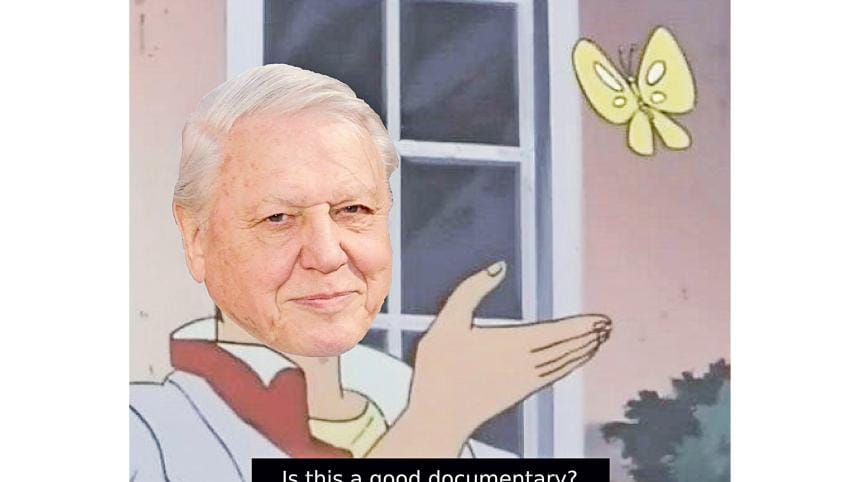Documentaries and How to Make Sense of Them

Ever watched a documentary about an individual, corporation, event or a group of people and thought to yourself, "Wow, that was cool!"? But as time goes by, do you start to realise that, perhaps, the people or other entities showcased in the documentaries are not what they are portrayed as?
If you do start having doubts, fret not, because it is a completely normal thing to doubt the information presented.
Documentaries can be either very informative and accurate, like the many nature documentaries of Sir David Attenborough, or simply shallow but entertaining or downright false and non-consumable, like the many past and present The History Channel documentaries in general. No one wants to watch a documentary named "Hunting Hitler" that tries to pass off a picture of The Three Stooges' Moe Howards as a "post-war photograph of Hitler still being alive".
Now, despite the existence of bias in some documentaries, there are several aspects of those contents that do include legitimate information. Unless you are checking out a documentary purely for the purpose of entertainment, you will need to skim that layer of sweet and creamy information off of the gunk of bias. But how do you do it?
Cross-checking References
As painful as references are to include in your assignments or theses, they exist for a proper purpose. The information you present cannot be trusted with simply you said it. It needs support from trusted and accepted publications and researches to prop up the theory you present.
Just like that, checking the references of a documentary, the individuals or papers the documentaries refer to, should be a clue. Try to steer clear of documentaries that refer to people who are not experts, or experts who've been discredited in their fields.
Tone
Try to check the tone of the documentary when the documentary speaks of a particular subject in question. Is the narrator avoiding pointing out any faults of the subject in question? Is the narrator criticising the subjects over superficial matters?
If you avoid the bias of the tone, and try to check out the information that seems to have at least some semblance of truth under the surface, you can save yourself from misconceptions. Also, try steering clear of preachy documentaries. If a documentary has an agenda, it's likely that it'll cut some corners in terms of informational integrity.
Title
If the title of the documentary goes something like "The Hunt for Atlantis", do not bother wasting your time on them at all. Odds are that you will find nothing good to skim off of them at all.
"Documentaries" with titles like these tend to have a host that leads a "search" for vague entities that ultimately lead to nowhere. And networks that air these shows only use them to milk this criterium of "documentaries".
Speculation
Documentaries on organisations and such other subjects can make educated speculations of what is to become of the subject at hand. However, speculations should not be the focal point of a documentary. Unless given enough reasoning as to why an event will take place as spoken of, try to avoid indulging too deeply in the speculation.
The thing to remember with documentaries is that it's risky to take whatever information is served at face value. Questioning what's being said is an important part of learning, and it's as important in documentaries as it is in classrooms.

 For all latest news, follow The Daily Star's Google News channel.
For all latest news, follow The Daily Star's Google News channel.
Comments